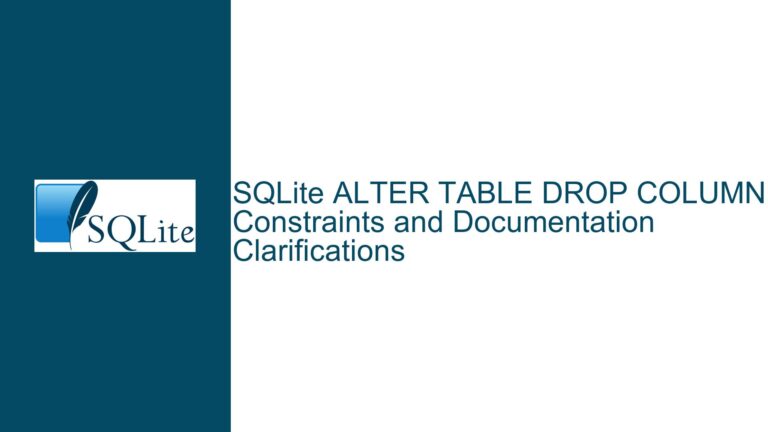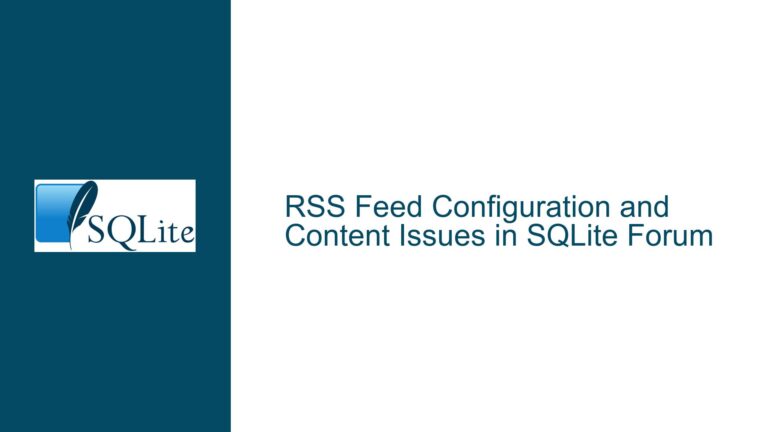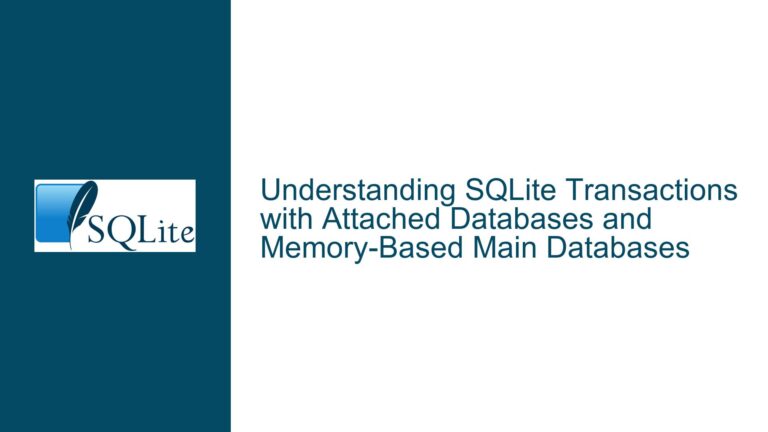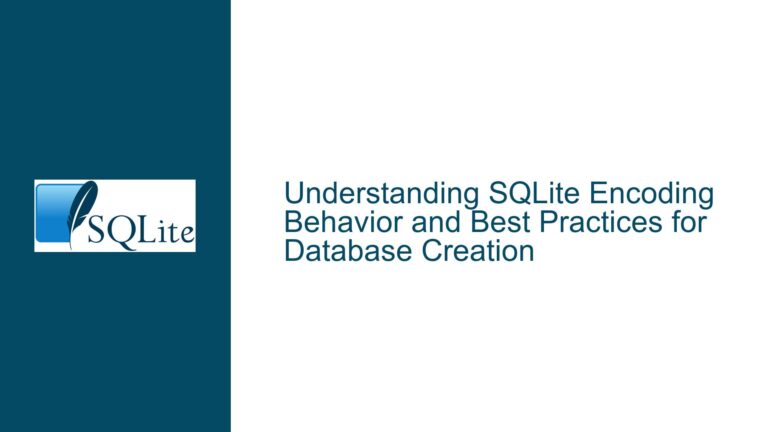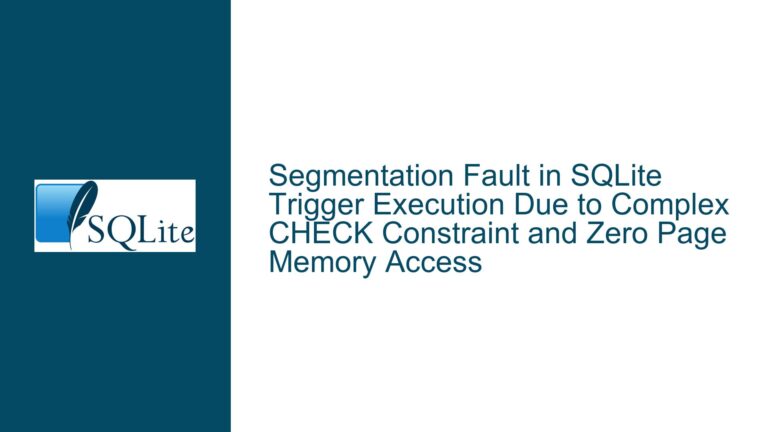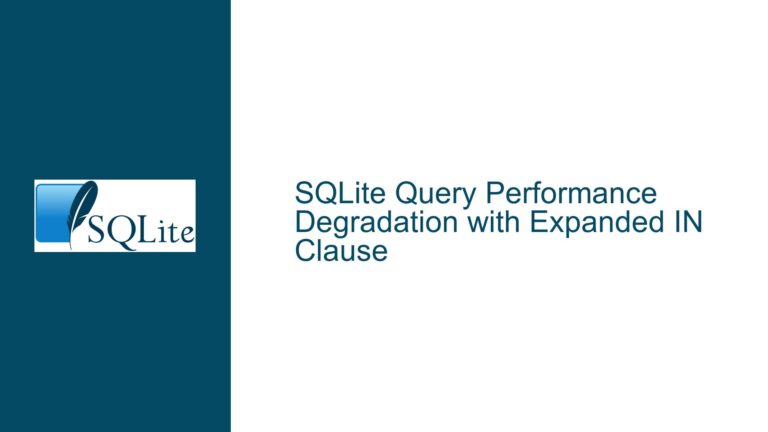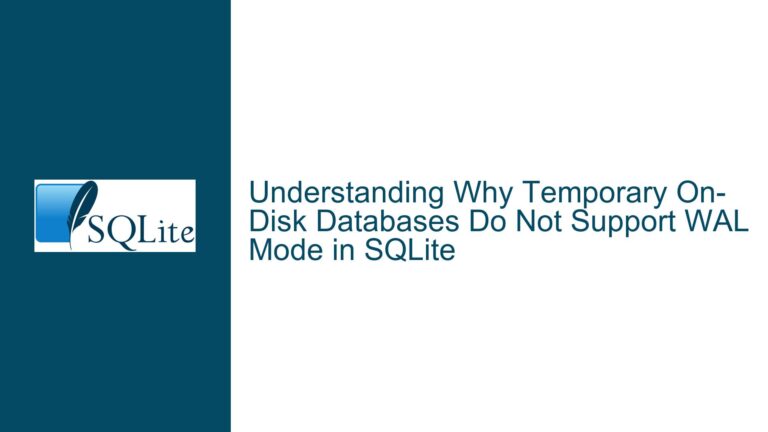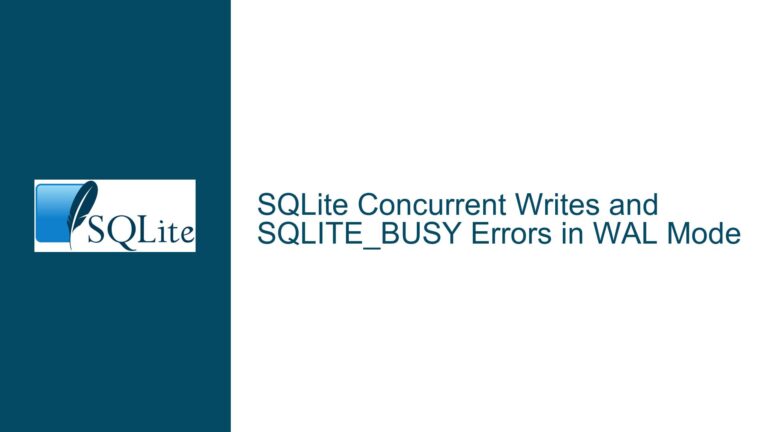SQLite ALTER TABLE DROP COLUMN Constraints and Documentation Clarifications
SQLite ALTER TABLE DROP COLUMN Behavior and Documentation Ambiguities The SQLite ALTER TABLE DROP COLUMN command is a powerful feature that allows database administrators to remove columns from existing tables. However, its behavior when interacting with constraints, particularly CHECK constraints, can be nuanced and sometimes confusing. The documentation surrounding this feature has been identified as…
